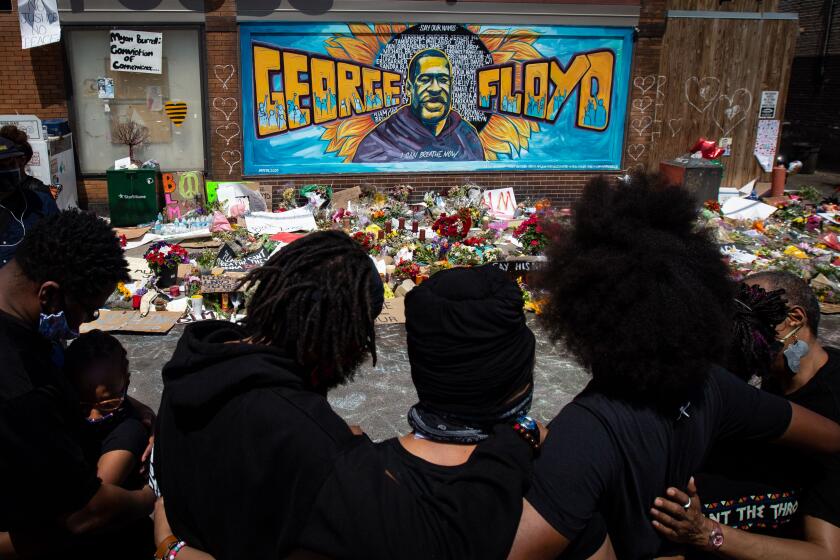A Hint of Smoke, a Magnitude of Voice
- Share via
Operatic powerhouse Denyce Graves seized the attention of a nearly full house Friday night at the Orange County Performing Arts Center with her lustrous voice and magnetic stage presence.
There was no mistaking the magnitude of this mezzo-soprano. No wispy recitalist, she.
In a program of songs spanning four languages and three centuries, Graves filled the big hall with a big voice that nearly defies description. Her tone is rich, layered, with a hint of rough texture that darkens the sound like peat smoke colors a fine whiskey.
In keeping with the character of this lyrical voice, Graves favors music that ranges from somber to tragic. Among the roles for which she is best known on the opera stage are Carmen and Dalila. She drew the most ecstatic response from the audience with the impromptu addition of the aria “Mon coeur s’ouvre a ta voix” from Saint-Saens’ “Samson et Dalila,” and, as one of four encores, the “Habanera” from “Carmen.”
But much of the program--largely repeating a recital Graves gave last month at UCLA--included music that is less well known: “Sea Pictures,” a group of five songs by Sir Edward Elgar, and four songs by Henry Thacker Burleigh, an early 20th-century baritone now best remembered for arranging spirituals.
The Elgar is a poignant work, with texts by various poets, including his wife, Carol Alice Elgar.
Particularly engaging was “Where Corals Lie,” featuring a light, syncopated rhythm in the piano--perhaps the sunniest piece on the program.
But of the two groups, it was the Burleigh songs that were the most interesting and the most deserving of better renown. Sophisticated, charming and very economical with notes--the second in the cycle, “Among the Fuchsias,” is particularly rich in silence--the songs cover the emotional range from strident to mournful.
*
Further adding to the musical breadth of the evening was a pair of heartfelt Handel arias, three somber songs by Brahms and “Siete canciones populares espanolas” by Manuel de Falla.
From start to finish, Graves and pianist Warren Jones fit tightly together, sharing their magic musical wavelength more as an ensemble than as soloist and accompanist. They also played off each other effectively in the subtle dramatics of a recital, taking turns at addressing the audience, for example, and clowning together in a Big Band-era tune called “The Joint is Really Jumping Down at Carnegie Hall” that Graves offered as an encore.
All in all, it was a first-class performance that shows Graves--already a star--is headed for bigger things still.
More to Read
The biggest entertainment stories
Get our big stories about Hollywood, film, television, music, arts, culture and more right in your inbox as soon as they publish.
You may occasionally receive promotional content from the Los Angeles Times.










